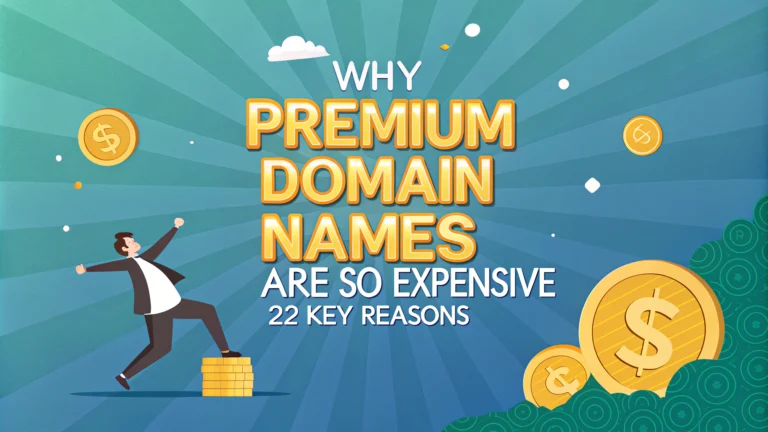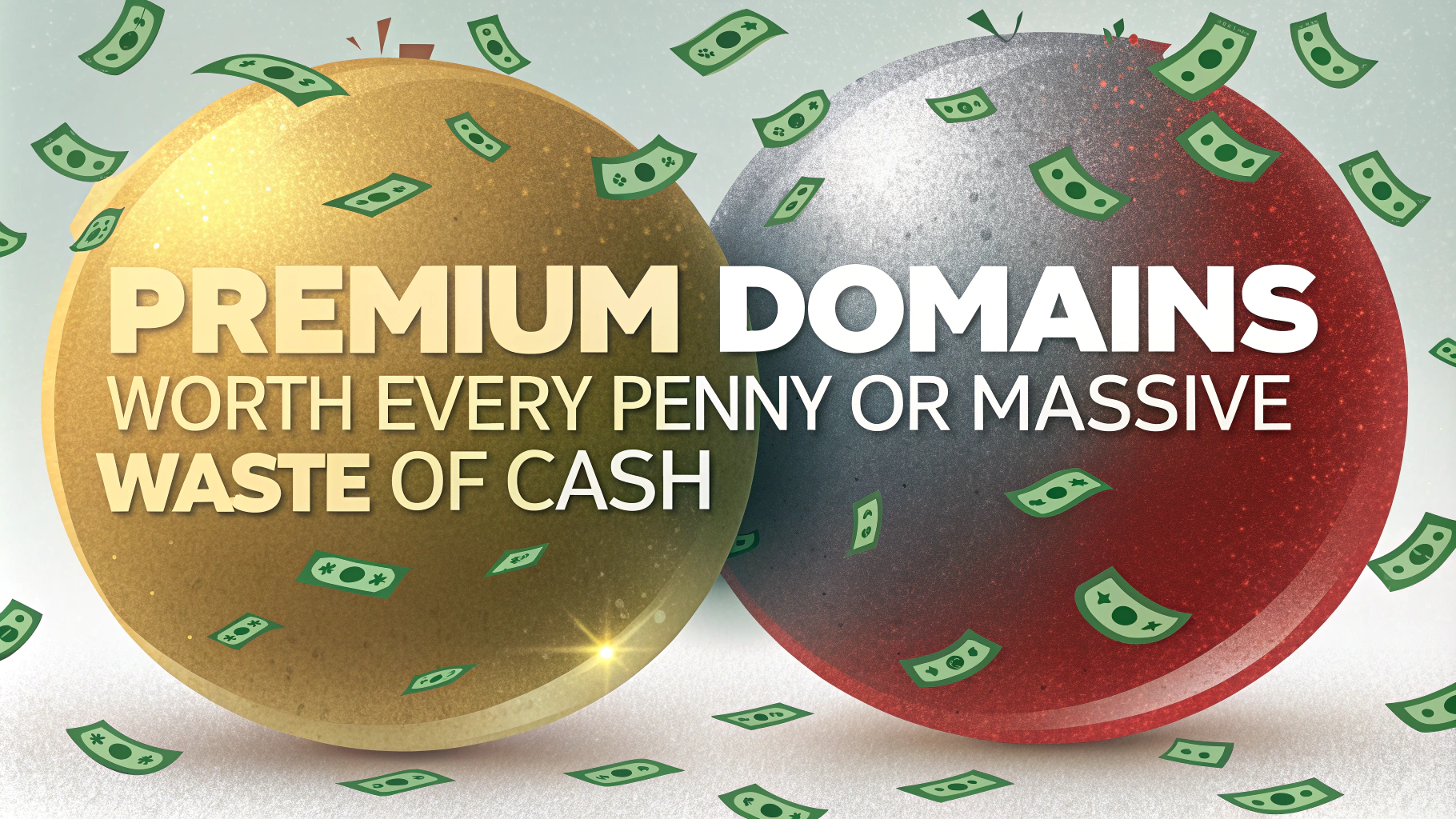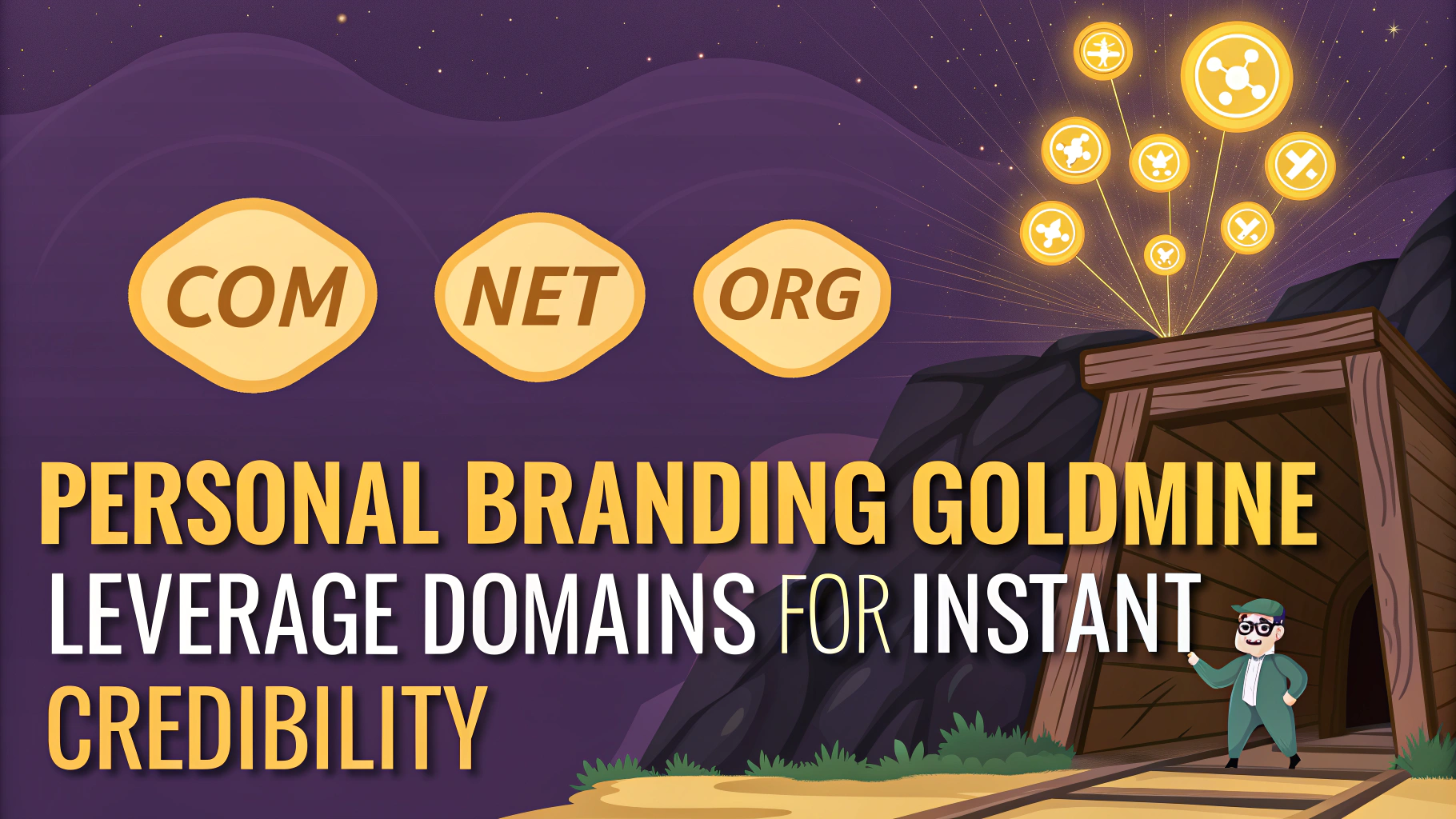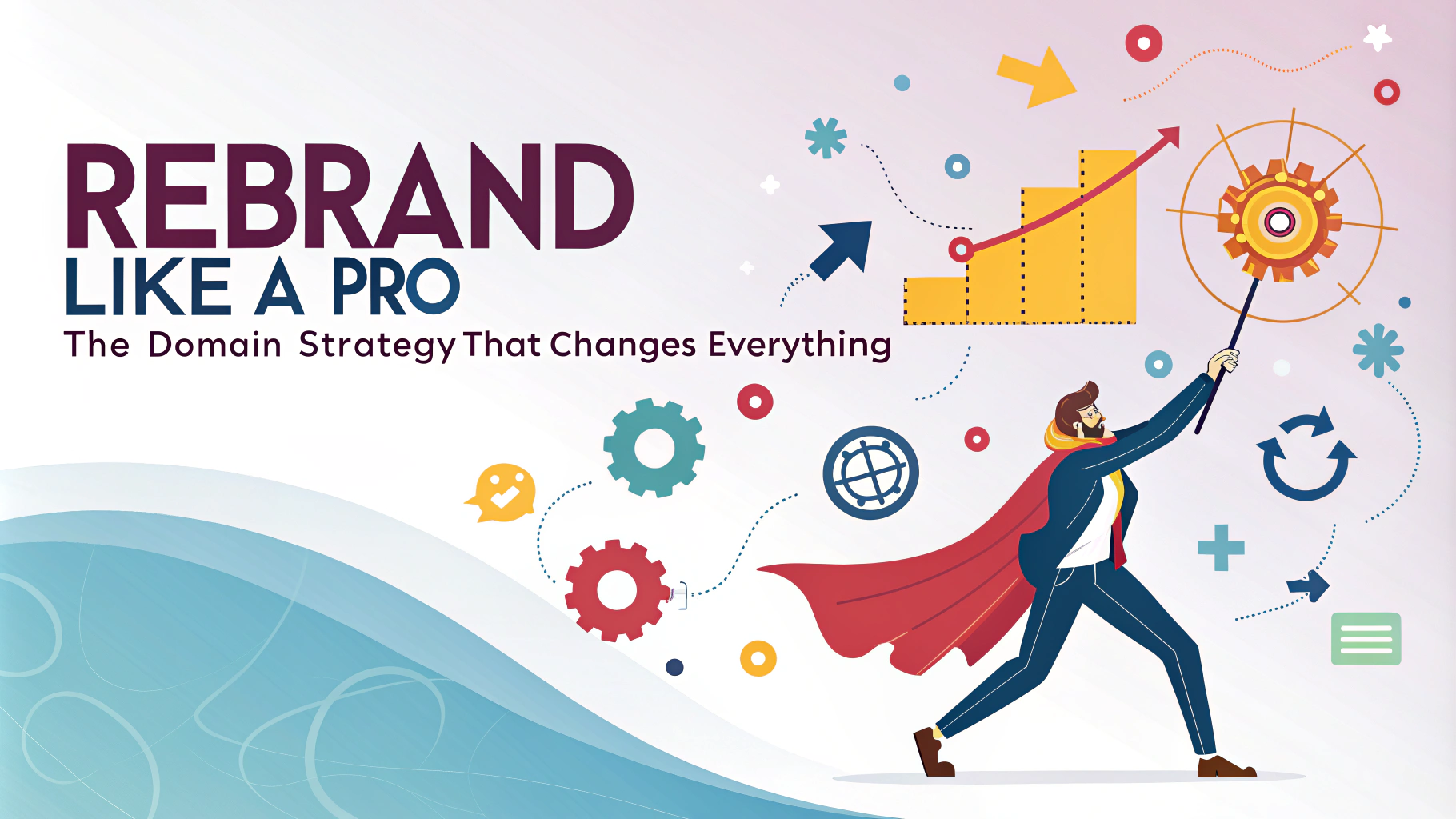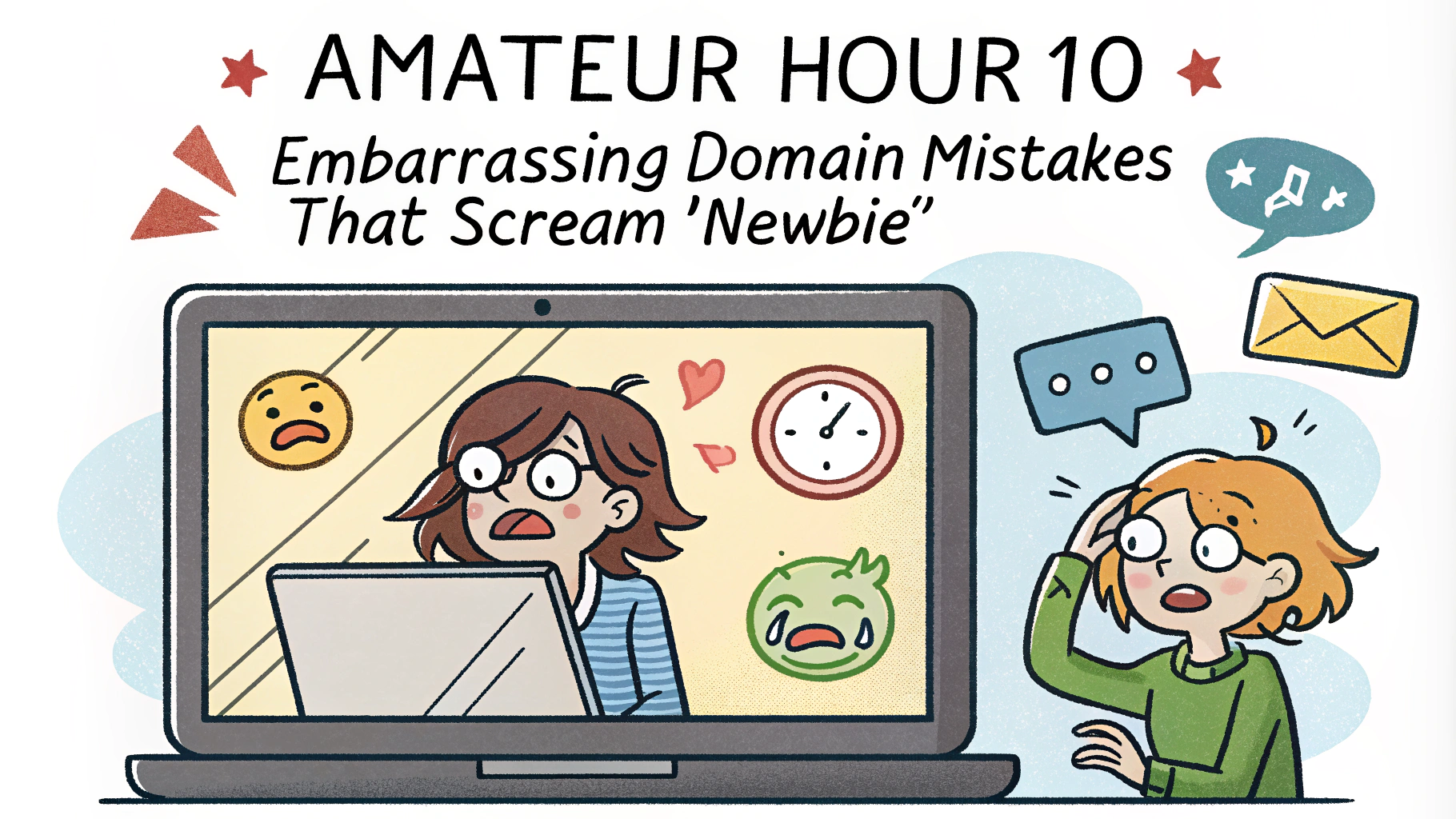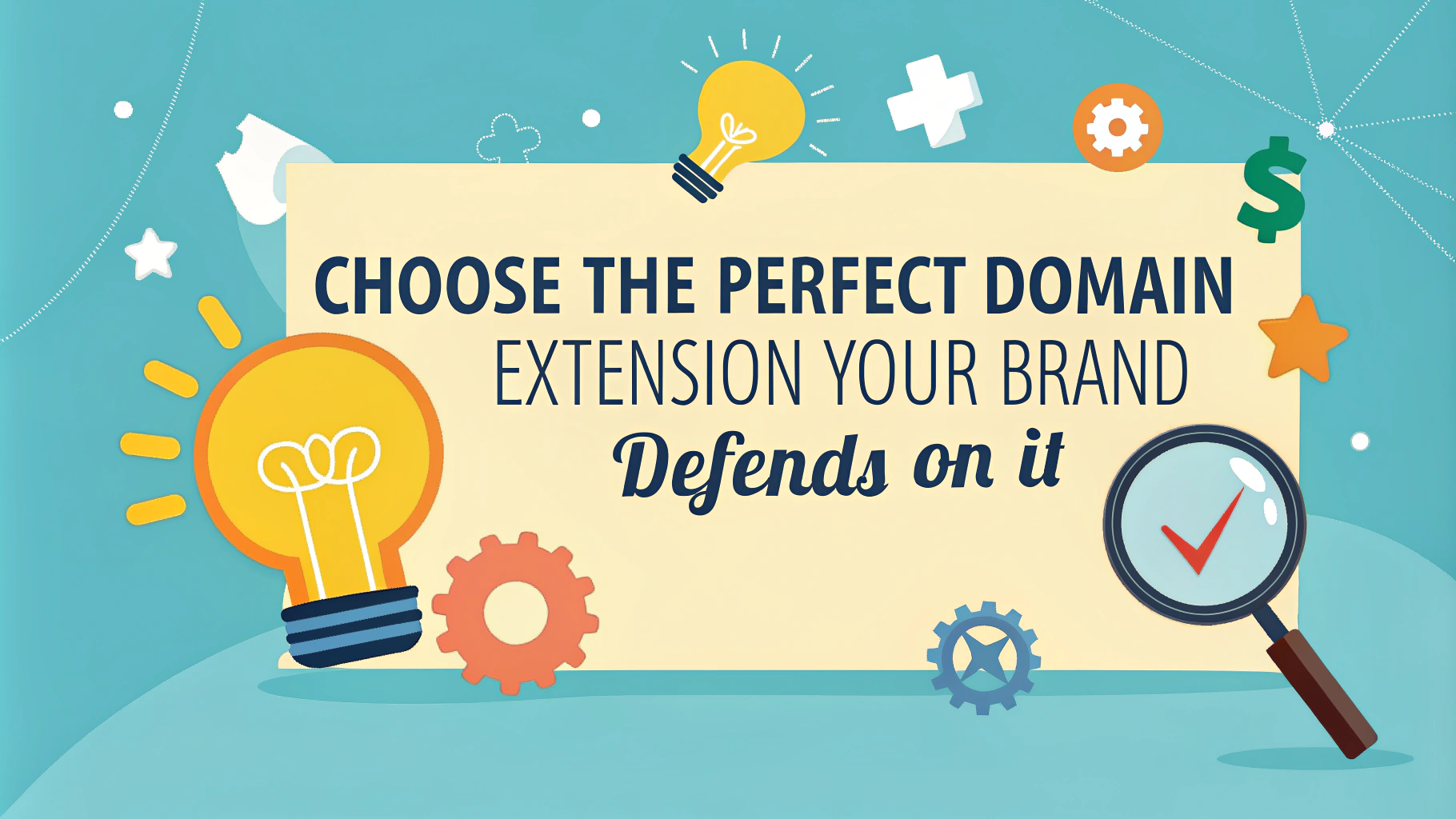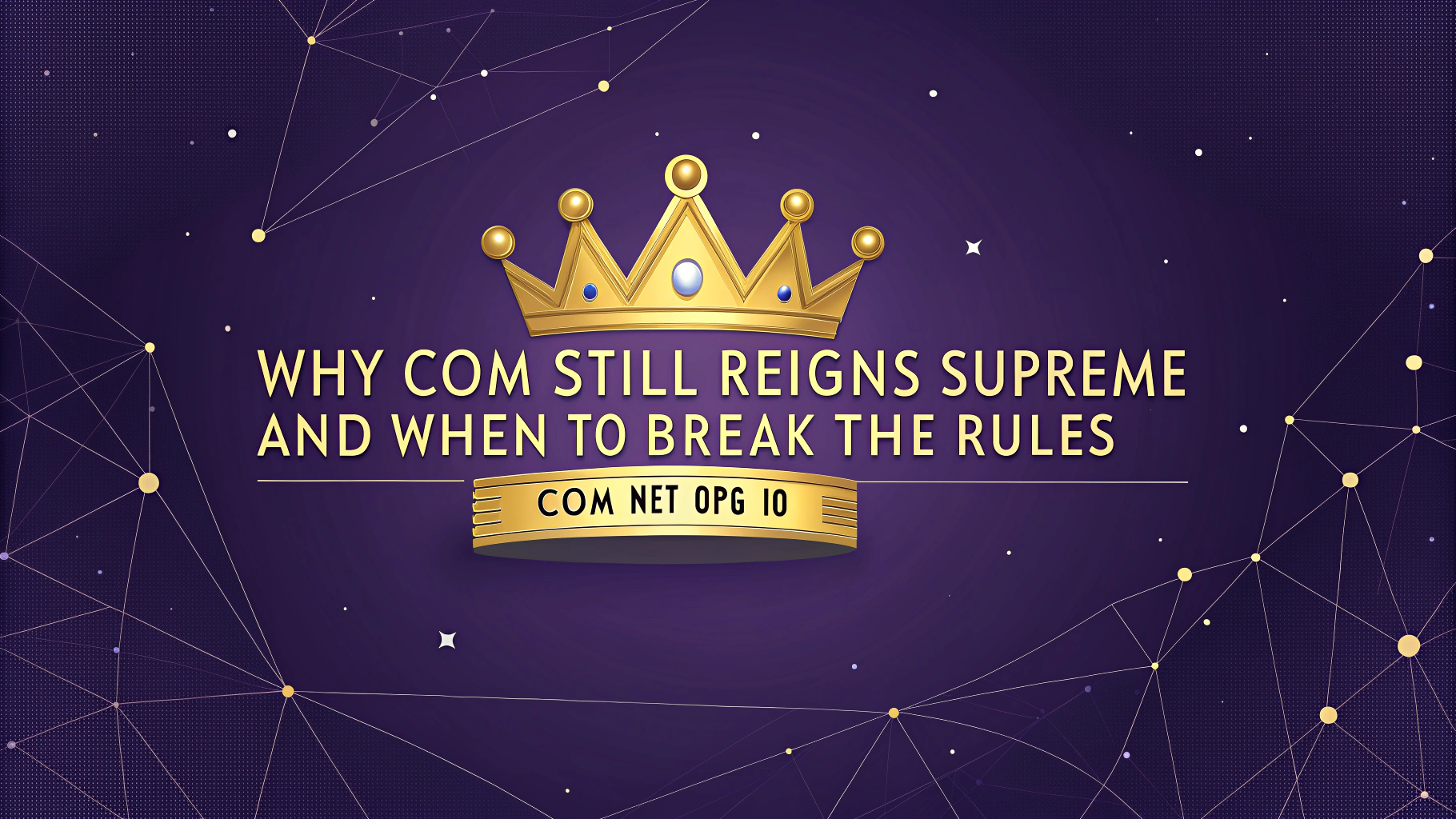If you’re reading this, you already know that premium internet domains can be ridiculously expensive.
Some businesses invest hundreds of thousands and even millions of dollars for their ideal domain – but is it really really worth it?
This article explores the 22 key reasons why premium domain names command such high prices. We’ll discuss their unique value propositions, examine real-world examples of high-value domain sales, and try to understand industry leaders who’ve made significant investments in premium domains.
Whether you’re a startup founder, a seasoned CEO, or simply curious about the world of digital real estate, this detailed guide will shed light on the true value of premium domain names in today’s competitive online landscape.
#1 One-of-a-Kind Asset
Premium domains are unique digital properties that can’t be replicated. Their scarcity drives value, similar to prime real estate. Owning a one-of-a-kind domain gives your brand an exclusive presence.
For example, LasVegas.com sold for $90 million, one of the highest domain sales in history. It highlights how valuable a domain tied to a major industry or city can become.
Actionable Insight:
If you own or plan to acquire a category-defining domain, think of it as a long-term investment, like owning prime real estate.
#2 High Demand
Premium domains are in high demand due to their potential to immediately communicate authority and industry relevance. This demand drives up prices as companies compete to secure the most valuable names.
For instance, CarInsurance.com sold for $49.7 million, demonstrating the lengths companies will go to for domains that perfectly describe their offerings【26†source】.
Tip:
Domain auctions and brokers are common places to find premium domains. Be prepared for competitive bidding and understand your financial limits before entering.
#3 Instant Brand Recognition
A premium domain can instantly communicate your brand’s identity, establishing immediate credibility and helping customers understand what you do.
PrivateJet.com, sold for $30.18 million, is a perfect example of a domain that instantly conveys luxury and exclusivity. Booking.com, another powerful domain, makes the brand’s purpose clear and easy to remember.
Visual Example:
Compare PrivateJet.com to a longer domain like “LuxuryJetCharterService.com.” The shorter, premium domain is easier to remember and builds trust faster.
#4 Impressive Impact
Premium domains create a strong first impression, which can significantly impact how your business is perceived.
For example, Amazon.com reflects Jeff Bezos’ vast ambitions to create the largest online marketplace. Similarly, FB.com, acquired by Facebook for $8.5 million, helped the brand create a streamlined and impactful online presence【26†source】.
Buyer’s Checklist:
Before investing in a premium domain, ask:
- Does it make an immediate impact?
- Is it easy to communicate and memorable?
#5 Trust Builder
A premium domain can act as a trust-building tool. Consumers tend to trust businesses with domains that feel authoritative and relevant to the service offered.
Hotels.com is a classic example, as the domain name instantly signals trustworthiness for hotel bookings. Similarly, Cars.com conveys reliability in the automotive industry, which helps draw in users looking for trusted car information.
Case Study:
Insurance.com, sold for $35.6 million, built its reputation as a trusted resource for online insurance, in large part due to its exact-match domain, which reduced marketing costs and boosted customer confidence.
#6 Door Opener
Premium domains can open doors to new partnerships and high-profile opportunities by providing instant credibility and authority.
When Salesforce acquired Data.com, they not only secured a valuable domain but also gained immediate industry recognition. Similarly, Sex.com, sold for $13 million, remains one of the most talked-about domain sales【26†source】.
Expert Quote:
“Premium domains serve as powerful credentials in the digital world, giving businesses a head start when approaching new opportunities,” says Andrew Rosener, CEO of MediaOptions.
#7 Lasting Impression
Short, memorable domains create a lasting impression that sticks with users long after they’ve left your website.
Weather.com and Dictionary.com are prime examples of domains that are easy to remember and aligned with their services. This memorability leads to higher repeat visits and word-of-mouth referrals.
Actionable Tip:
Choose a domain that’s easy to say aloud and spell. If people can remember it after hearing it once, it’s likely to make a lasting impression.
#8 Competitive Edge
A premium domain provides a competitive advantage in crowded markets by making it easier for potential customers to find and trust your brand.
For example, Cash.app helped Block (formerly Square) gain a significant edge in the mobile payment space with a simple, memorable domain. Similarly, Wise.com (formerly TransferWise) stands out in the financial sector due to its concise and trustworthy domain name.
Pro Insight:
In a competitive market, a short, one-word domain often performs better than longer, complex domains, offering a clear competitive edge.
#9 Authority Projection
Premium domains convey authority, positioning your brand as a leader in your field. When a user visits a site with a premium domain, they are more likely to view it as a trusted source.
For instance, News.com, owned by News Corp, projects authority in journalism. TechCrunch.com reinforces its position as an industry leader in technology news.
Tip:
Consider how your domain name aligns with your industry’s credibility. A premium domain that reflects authority can help build long-term trust with your audience.
#10 Wow Factor
Premium domains have the ability to impress and create a buzz, drawing attention to your brand and generating organic interest.
When Blockchain.com raised $40 million, its premium domain contributed to its credibility within the cryptocurrency industry. Likewise, Virgin.com serves as a powerful hub for Richard Branson’s diverse business empire, giving visitors an impressive first impression.
#11 Performance Driver
Premium domains often perform better in search results and advertising campaigns due to their relevance and authority.
For instance, Apartments.com benefits from its strong, keyword-rich domain and user trust. Expedia.com also excels in organic search due to a combination of strong branding and a relevant domain, though it’s the overall user experience that ensures lasting success.
SEO Enhancer:
Although a premium domain doesn’t guarantee top rankings, it can positively impact your click-through rates and brand perception, which indirectly support long-term SEO.
#12 Irreplaceable Asset
Premium domains are irreplaceable and often appreciate over time, making them valuable long-term assets.
For example, LasVegas.com sold for $90 million, and its value has only increased as more businesses look to dominate the travel and entertainment sectors in Las Vegas.
Investment Tip:
Premium domains are like digital real estate—they appreciate in value and offer a secure, long-term investment opportunity.
#13 Message Conveyor
Your domain name is often the first thing people see and should immediately convey your brand’s message.
Amazon.com was a strategic choice that communicated Jeff Bezos’ vision of becoming the largest online store. Stripe.com reflects simplicity and ease, aligning with its payment processing mission.
Tip:
Make sure your domain matches your brand’s core message and is easy to understand without explanation.
#14 User-Friendly
Premium domains are typically short and easy to type, which makes it easier for users to navigate to your website.
For example, Uber.com is incredibly concise, making it easy for users to remember and type. Airbnb.com, though longer, is still distinct and simple, helping the brand grow into a global household name.
Pro Insight:
A short, user-friendly domain reduces the chances of mistyping, increasing the likelihood of users reaching your site without error.
#15 Meaningful Connection
Premium domains often have an intrinsic meaning that helps users immediately understand what your business offers.
Jobs.com, for instance, clearly signals its purpose, which attracts job seekers. Zillow.com is a memorable, brandable domain that hints at real estate services, making it easy for users to connect with the brand.
#16 Memorability Factor
Premium domains have a memorable quality that sets them apart. The shorter and more relevant the domain, the easier it is for users to recall and revisit, leading to increased direct traffic and brand loyalty.
For instance, Booking.com is synonymous with online travel reservations because of its simple, descriptive nature. Similarly, t.co, Twitter’s URL shortener, is so short and distinctive that it’s instantly memorable, allowing users to recall and use it effortlessly.
Pro Tip:
Domains that are easy to pronounce, spell, and remember are more likely to lead to direct traffic and repeat visits. Conduct a quick memorability test by asking users to repeat the domain after hearing it once—if they can do it easily, you’ve likely found a winner.
#17 Traffic and Conversion Booster
Premium domains can come with pre-established traffic, and their relevance often boosts conversion rates. Exact-match or keyword-rich domains help users immediately understand the product or service, which makes them more likely to convert.
For example, Cars.com benefits from its exact-match domain, driving organic traffic from users searching for car-related services. Similarly, Mashable.com retained its established traffic even after being acquired by Ziff Davis, thanks to the trust built around its domain over time.
Conversion Insight:
Domains that are descriptive and closely aligned with what users are searching for tend to perform better in conversion rates. They not only capture more organic traffic but also make users feel like they’ve landed on the right place for what they need.
#18 Historical Value
Premium domains with established histories often come with built-in SEO value, thanks to existing backlinks and years of online presence. Domains that have been live for a long time tend to be more authoritative, making them valuable for companies looking for a head start in SEO.
When Salesforce acquired Data.com, they inherited not only the domain but also its legacy value, including a solid backlink profile and a recognized name in the data industry. Similarly, Weather.com benefits from decades of history as a trusted source for meteorological information, boosting its search engine ranking.
Actionable Insight:
Before purchasing a premium domain, assess its SEO profile. Check the domain’s backlink history and authority to ensure you’re getting added value from its established presence.
#19 Marketing Cost Reducer
Premium domains can significantly reduce marketing costs by driving organic traffic and attracting direct type-ins. A domain that closely matches what users are searching for reduces the need for aggressive paid advertising, as users naturally find the brand.
For instance, Hotels.com benefits from being an exact-match domain for hotel bookings, capturing valuable direct traffic without heavy ad spend. Similarly, Norton.com enjoys lower customer acquisition costs because its brand is trusted and recognizable, leading to more organic search traffic.
Cost-Saving Tip:
Investing in a premium domain with keyword relevance can reduce your dependency on expensive paid advertising campaigns. As brand recall increases, customer acquisition costs decrease, saving marketing dollars over time.
#20 Competitive Advantage
A premium domain provides a competitive edge by positioning your brand as an industry leader and blocking competitors from acquiring similar names. In crowded markets, having a short, authoritative domain can set you apart and make your brand more accessible.
For example, Cash.app helped Block (formerly Square) secure a dominant position in the mobile payment industry. Similarly, Wise.com provided an edge in the financial services market with its concise, trustworthy domain, making it easier for users to find and trust the brand.
Expert Insight:
Owning a premium domain not only gives you a competitive advantage but also acts as a defensive strategy by preventing competitors from acquiring a domain that could confuse or mislead your customers.
#21 Digital Asset Value
Premium domains are high-value digital assets that can appreciate over time, much like real estate or intellectual property. As businesses continue to move online, the demand for short, memorable domains increases, making them powerful investment opportunities.
For example, PrivateJet.com sold for $30.18 million, showcasing the premium that luxury brands are willing to pay for a name that instantly conveys exclusivity. Similarly, LasVegas.com, which sold for $90 million, represents how a domain can act as a long-term asset with growing market value in a highly competitive industry like travel.
Investment Insight:
Owning a premium domain can act as a safeguard against inflation and offer substantial returns on investment over time. As the digital economy grows, owning a premium domain can become more valuable, especially if the market niche becomes more competitive.
#22 SEO Enhancer
Premium domains do not automatically improve SEO, but they can have indirect benefits by increasing trust, click-through rates, and brand recognition.
While Apartments.com and Booking.com dominate their industries, their SEO success comes from a combination of factors like content quality, user experience, and authority, not just the domain name. A premium domain, however, can improve click-through rates in search results, as users tend to trust and click on short, relevant domains.
SEO Insight:
Although a premium domain won’t guarantee top rankings, its user trust and click-through potential can contribute to better long-term SEO performance.
Conclusion
Premium domains offer long-term value, brand trust, and competitive advantages. They are digital assets that appreciate over time and reduce marketing costs, making them invaluable investments for businesses looking to establish authority and gain a competitive edge.
Before making an investment, ensure the domain aligns with your business goals and digital strategy for maximum impact.

